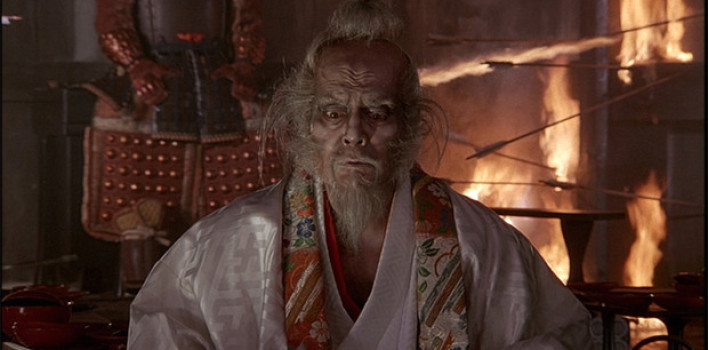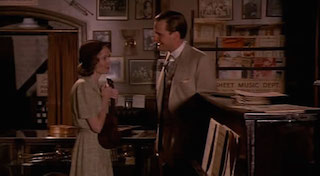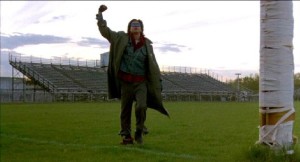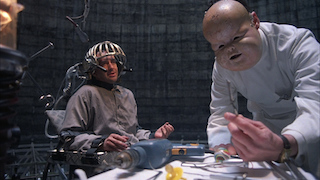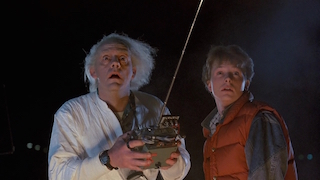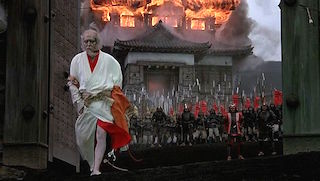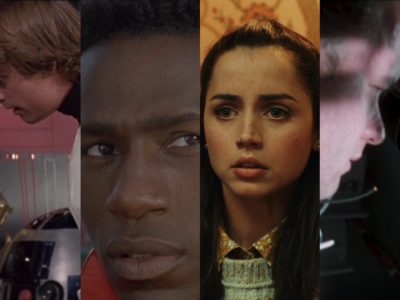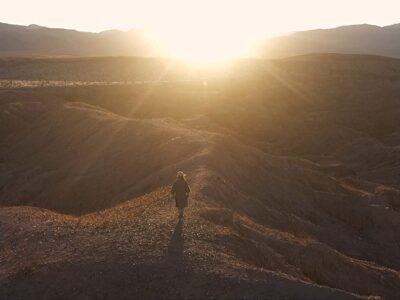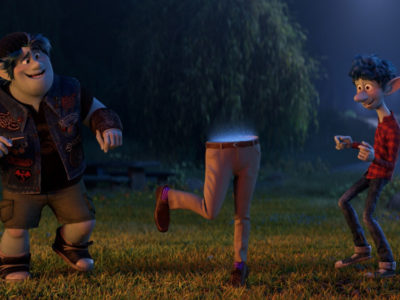Top 5 Movies of 1985
It’s finally here! After spending the month of September looking at some of the best movies in different categories from 1985, we’ve reached the final countdown. Once you’re done singing along with Europe, make sure to check out the previous lists from the month of September:
Top 5 Movies from 1985 That Don’t Hold Up
Top 5 Big Name Director Movies of 1985
All caught up? Good. From those movies the list has been whittled down to the Top 5 of the whole year. It was a daunting task, but hopefully you find the list satisfying.
5) The Purple Rose of Cairo
I’m so glad I finally saw this movie and that it made the list! I had a difficult time choosing this movie or Witness to put in the #5 slot, but ultimately this movie feels more memorable than Peter Weir’s stellar thriller.
I’ve never been the biggest fan of Woody Allen, but this has to be one of the top movies he as ever made. It’s witty, creative, well-acted, and so much fun! The movie never feels heavy on the drama and majors on a formula of sincerity, one-liners, and an easy-going mentality. While a lot of Allen’s more recent movie lack this quality, that cannot fault him here, and I could create my own Top 5 of things I love from this movie.
Particularly, my favorite running gag throughout the movie is when they cut back to the characters stuck in the screen after Jeff Daniel’s character leaves the movie. They bicker with each other and the audience, unsure of when they might be able to get bak to the movie and also being absolutely perplexed as to what to do while Daniels is galavanting about New York City. It’s a fun premise that takes breaking the fourth wall to a different level not just on a comedic level but on a existential plane, as well. The characters only know what the movie has allowed them to know, and that clever touch is a fun thought experiment on the extent of human knowledge and the discovery of things outside our understanding.
4) The Breakfast Club
As I stated in my previous entry on the movie, The Breakfast Club perfectly captures the teenage spirit. Kids of the 80’s, or even kids in general, can relate to the portrayals of five teenagers dealing with parental expectations, hidden hurts, and the pressures of friendship and romance. These five teen stereotypes are both conformed to in the movie and broken. There is this ironic relationship between the film itself and the audience that the different stereotypes are indeed caricatures of teenagers but also acceptable portraits that we as relational humans tend to group people into when we are in high school. You don’t want to label yourself but you are comfortable doing it to everyone else. The Breakfast Club plays with this tension and reveals the logic of the stereotypes but also how wrong they are.
If there is any thing that holds back the movie, it might be some of the more on-the-nose portrayals by Emilio Estevez and Judd Nelson, but also the odd choice to have All Sheedy, the Basket Case, shed her semi-gothic, grunge look in favor of the beautiful makeover she gets at the end. It seems to go against the grain of the message of the movie, but it also might be another genius moment where Hughes’ is still circumventing normal conventions by the choice. It’s hard to read and that is why it might make it easy to toss aside or give points to the movie. All of those things aside, the movie still holds up due to it being somewhat generic with its choices and setting; except for the musical choices. But even then, you can’t get that Simple Minds song out of your head, can you? I didn’t think so.
3) Brazil
Wonderfully and terrifyingly imaginative, Brazil is an unhinged, comedic Sci-Fi noir. Boasting a false ending and a surprise twist ending, which now feels cliche but then was brilliant, there is not a moment where director Terry Gilliam will let you breathe. When you finally do get that moment towards the end, which was the ending in the controversial 94-minute “Love Conquers All” cut of the movie, it is abruptly crashed by Gilliam’s version of the stormtrooper in his Orwellian fantasy world.
Should this movie be higher? Should it be on this list at all? I think it might even deserve to be a little higher and replace the #2 slot. However, as much as I think Brazil is a one-of-a-kind movie, as if yanked completely finished right out of Gilliam’s cerebral cortex, it cannot stand under the weight of the cultural influence the #2 movie of 1985 has.
2) Back To The Future
GREAT SCOTT! I love this movie! Having watched it to catch up for the podcast we did in August, it cannot be shaken from its penultimate finish on the top movies of 1985. As I stated i a couple different places about the movie, it is a perfect storm of comedic performances, directorial craftsmanship, and the right cultural moment in time. Any movie dealing with time travel must address the simple logic of BttF and also not copy it 100%. The Simpsons episode dealing with time travel is the only show or movie I can think of that came close to matching the level of fun and science that Back to the Future does.
What else can you possibly say? I’m sure you are familiar with it and can agree; there is no other movie quite like it. It’s 1.21 gigawatts of fun and hilarity. It shouldn’t work. It should age terribly but it just doesn’t.
1) Ran
The title of the movie means chaos, and director Akira Kurosawa’s brilliance is in the simple but profound visual storytelling. Approaching storm clouds rumble with foreboding until spilling forth in the climatic castle siege of the middle of the movie. The extended battle sequence is both a literal and figurative hell that Kurosawa intended to communicate the despair of human suffering that no faith or deity can alleviate. It’s a dark, hellish epic poem of a nihilist reality and the chaotic cycle of despair. However, I do believe that despite the movie’s seemingly grim and dire message, there is hope to be read into the plight of the Ichimonji family.
*minor spoilers for Ran*
In the final ten minutes of the movie, Lord Hidetora is being escorted to his third son Saburo’s new home to be kept safe and allow Saburo to become his heir. As they march through a fiery, hell-like open plain, Saburo is senselessly gunned down by his now dead older brother’s assassin. Lord Hidetora has finally experienced to much grief to handle and he dies cradling his son’s corpse. When they are both discovered, Lord Hidetora’s fool Kyoami, played remarkably by Pîtâ, curses the the god’s cruelty and says they cannot exist if this world is so callous and hellacious. Shuri Kurogane, one of Hidetora’s trusted generals, silences Kyoami and says not to curse the gods. He says that obviously the gods do not care about humans because they are so terrible to one another and that only wrath and judgement befalls humanity for its hubris and crimes against one another. It’s awfully depressing and is punctuated with the unfurling of a scroll detailing a Japanese scene of hell; in case you didn’t get it from the imagery.
Kyoami and Kurogane expound to common views of suffering and pain. However, we as Christians can inject a hopeful tone into Kurosawa’s somber dirge. The cross of Christ, the pinnacle of suffering, satisfies the wrath Kurogane spoke of. We do deserve death, but in Christ God rescued us from those things out of a love for us. Kyoami was right to weep, but where Kurosawa’s narrative is content to keep us in suffering, Christ weeps with us and suffered like us. There is a deep resonance to this movie that can find restoration in the Gospel narrative. One day, we will be fully restored and the kind of chaos and suffering in Ran will be wiped away. No scroll detailing hell’s sufferings will be read, but the scrolls will be opened, as it says in Revelation, and a new heavens and new Earth will be made when Christ comes to gather all things to himself. While it is not in anyway a part of Kurosawa’s narrative, it is the whole picture, whereas Kurosawa’s brilliant masterpiece is a smaller snapshot of the human condition. Thank God it will not end that way eternally.


